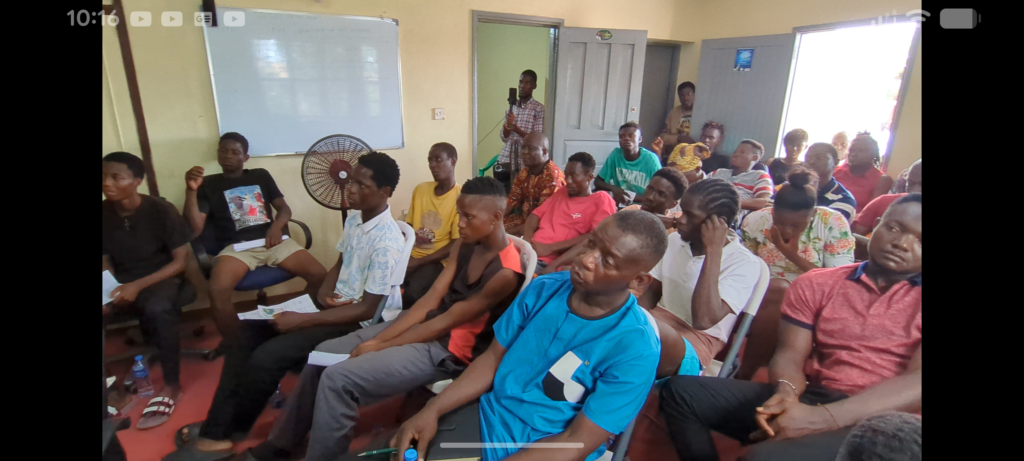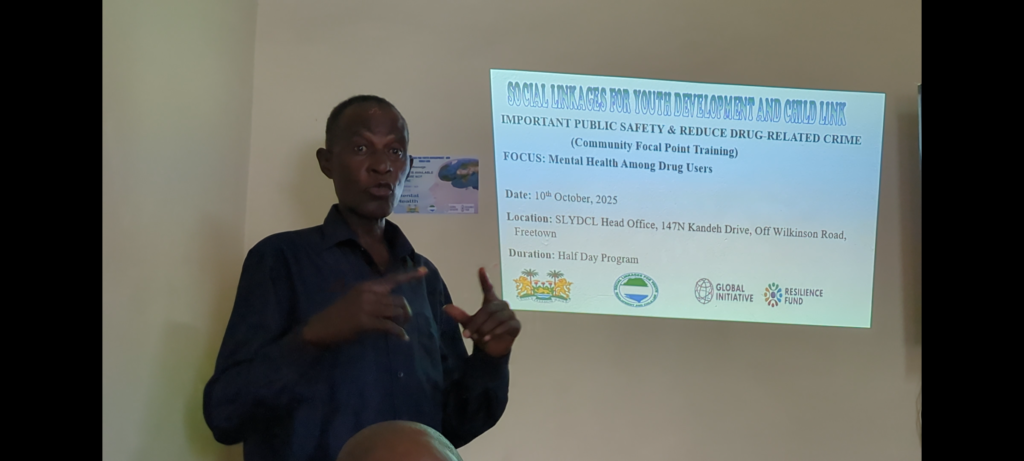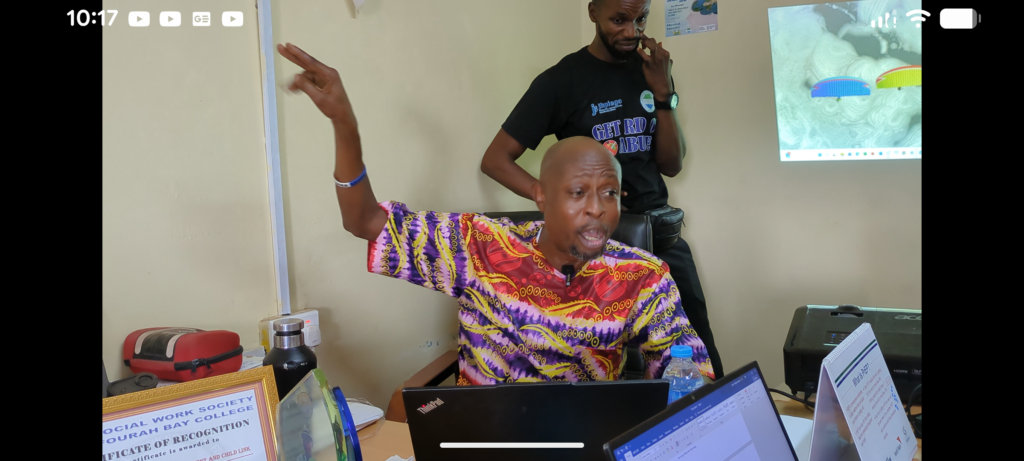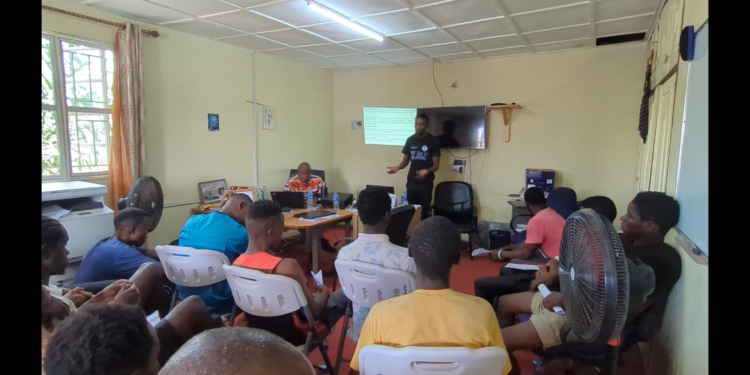By ManoReporters Staff Writer

Social Linkages for Youth Development and Child Link (SLYDCL) on Friday, 10th October commemorated World Mental Health Day (WMHD) with a community focal point training organized to sensitize young people on the effects of drug and substance abuse. The training also touched on the correlation between mental health and drug abuse and the importance of seeking care.
Some 50 current and former drug users attended the training which took place at the head office of the civil society organization on Kande Drive, Off Wilkinson Road in Freetown.
SLYDCL works with people who inject drugs, mainly youth, who are considered as one of the key populations in the fight against HIV. The organization strives to ensure protection of drug addicts against such infectious diseases by making accessible to them safe tools like needles and syringes. It also advocates for the implementation of the harm reduction strategy in the fight against drug and substance abuse.
“Data indicates that young people who are the future of this country are getting their lives destroyed due to drugs and substance abuse,” Habib T. Kamara, Executive Director of SLYDCL, said in a statement prior to commencement of the training.
Sierra Leone is presently dealing with an epidemic of drug and substance abuse. Many of the victims are thought to be consuming Kush, the substance at the center of the epidemic. SLDYCL has been at the forefront of the fight against this menace.

Friday’s event also included peer educators and peer navigators, who are former drug users who have been transformed and are serving as change agents by advising drug users on safe socio-behavioural practices. These men and women work with the drug users in the communities, often in isolated places that are hard to reach and can be hostel.
“Both the drug users and the peer educators and peer navigators deal with mental health issues either as they take drug or when they provide services in the community. So this training session was important to help them navigate challenges of stigma and discrimination they go through in these communities,” Kamara told ManoReporters.
“Putting mental health into harm reduction programme is important to deal with community stigma for even those who provide support,” added Kamara.
The participants came from communities in and around Lumley, one of the most drug infested areas of the Sierra Leonean capital.
HIV prevalence in Sierra Leone is 1.7 percent. This translates to over about 78, 000 people living with the virus in the country, according to the latest available data from the National AIDS Secretariat. But only about 40,000 of these, according to the same data, are on treatment, which campaigners say is a cause for alarm.

SLDYCL says the objective of Friday’s training was to reduce drug related crime and enhance public safety by increasing community awareness, strengthening early intervention, improving access to support services and fostering collaboration among stakeholders. The sessions entailed presentations on mental health, including stigma and mental health in youth. The peer educators and peer navigators were also trained on how to approach their clients.
Journalist and Editor of ManoReporter, Kemo Cham, gave the keynote statement at the event, in which he appealed to the participants, especially those involved with drugs, to take their destiny in their own hands and stay away from drug and substance abuse.
“While government and its partners like SLYDCL are making efforts to put an end to this Kush menace, ultimately it is your individual responsibility to know right from wrong and ensure that you protect yourself from this calamity that is befalling the country,” Mr Cham said.
Mustapha Kellah, Psychosocial Lead at SLDCL, as part of a presentation on mental health and stigma, spoke about the importance of normalizing mental health discussion.
“We were all in this predicament at one point. We had many negative things thrown at us. If I am here today speaking to you, anyone of you can be like me,” he said, while urging the drug users to muster courage and seek help by sharing their problems.
SLYDCL provides safe space for drug victims to not just access service but to receive counselling. Me Kellah urged the participants to make use of these facilities he said are for them.
SLYDCL is a member of the Consortium for the Advancement of Rights for Key Populations (CARKAP), which works to improve the health, social and economic conditions of vulnerable communities. CARKAP focuses on populations most affected by HIV, TB and Malaria by promoting access to quality healthcare, removing human rights related barriers t services and advocating for their rights and inclusion.
Harry Ben Alpha, Programme Manager for CARKAP, did a presentation on mental health in the digital age, vis-à-vis the impact of social media on mental health and the strategies for resilience. He told the participants that mental health issues weren’t isolated to one particular experience or group of people.
“On this day, we should be ambassadors to raise awareness in our communities,” he said.
The event is part of ongoing activities designed to sensitize young people vulnerable to drug and substance abuse and to spur collective action in the fight against the crisis. The initiative is funded by the Global Initiative Against Transnational Organized Crime (GI-TOC).
GI-TOG conducted a study, in collaboration with SLYDCL and other local partners to identify the ingredients used in the manufacture of Kush, and it findings informed the formation of a project that is geared towards raising awareness about the dangers associated with the drug.






















